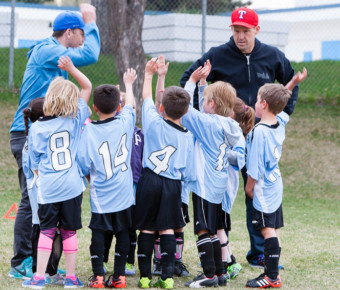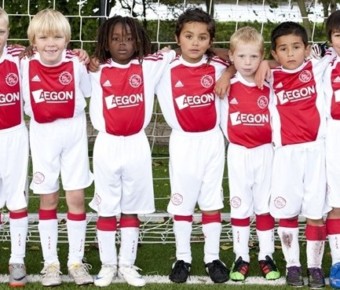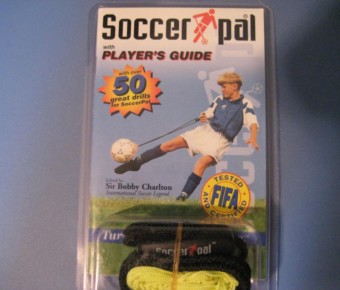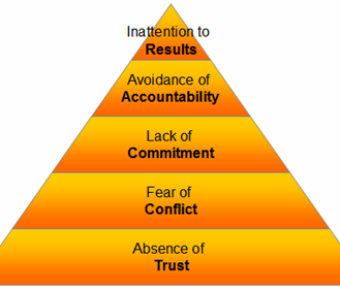Coaching discipline for football training
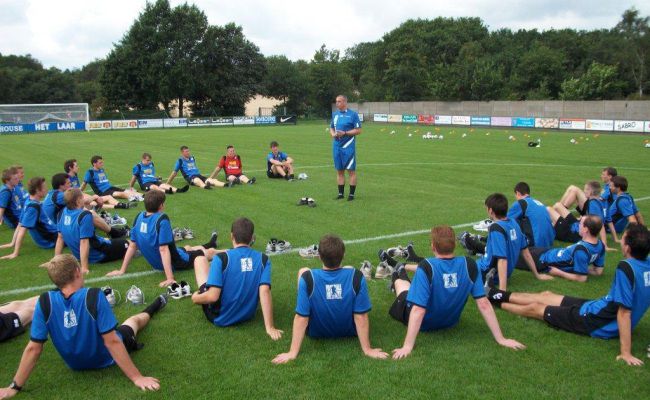
Discipline is the suppression of base desires, and is usually understood to be synonymous with restraint and control. Self-discipline is to some extent a substitute for motivation. To be able to be successful with anything we need to be clear about our goals and with this knowledge, set the rules for the discipline we expect during our football training.
I like to start most of my sessions to remind the players why we come to training, it helps to set out the boundaries, to create the rules and create a learning environment for everyone to achieve the same common goals. I also like to be clear about the part of the body that plays football and how it is important that we keep that part of the body the most engaged of any.
So the two most important questions to ask your group are:
1.To play football
2. To learn
3. To have fun
The brain
Why do we come to football training?
The answer to the first question (“Why do we come to football training?”) is to play football, to learn and to have fun. I like to put the answers in this order and narrative for the clear reason that the “to learn” part is sandwiched clearly between two words that everyone present should associate with enjoyment (football and fun).
To learn football is often given a stigma, the feeling of removing the fun and making an activity not as enjoyable (how many times do you get the question “coach, when will we have a match?”). By putting the answer in these short phrases and in this order we can help to remove the stigma using a simple “repeat after me” to learn the answers to the question, in a certain way, we have asked “Why do we come to football training? The answer, “To play football, to learn, to have fun!”
We have created a play on words, based upon the punctuation of the sentence. If we take the punctuation out, we can just as easily say the answer is “To play football to learn to have fun” and the sentence can take up multiple meanings for the same common good.
We are teaching that the discipline required for us to have a successful football training session, will allow us to “to play football to learn” and “learn to have fun”. This is to say that when we play during training, we play in a way so that we may learn and by doing so we can have even more enjoyment from the game of football when we actually play it for real against an opponent (in the normal confines of the rules of the game).
We are indeed learning to have fun, by learning the discipline that is required to make our football better and with that, more fun!
What part of the body do we play football with?
The second question “What part of the body do we play football with?” answer: The Brain. This reminds us that we must think about what it is that we are doing (please see our post Brain Centered Learning) and how we do it so that we can learn.
Which takes us perfectly to the next very clear point about listening to the coach, hearing the correct instruction and being able to act on these quickly.
With this clear objective set in place, we can then introduce the rules that help us to achieve these goals during the time that we have together in the coaching environment.
Setting the discipline by setting rules!
- Do not talk when the coach (or anyone else is talking) is talking. The time for talking is a time for learning and understanding, this must be done in an organized and controlled manner. If someone is talking when you are talking, it means they are stopping someone from listening and that they are not listening to you or the person who’s speaking “ON TOPIC”!
If anyone else starts talking when you are talking, be clear for them to stop talking, when you are talking. If it persists with an individual, do not talk any more and wait for that individual to look at you and stop talking. In this way the entire group also has to wait for the individual to stop talking and by a simple creation of collective responsibility, solidarity and understanding of the rules we have created a collective understanding.
- Look at the coach (or person that is talking) when they are talking to you. To look at someone when they are talking shows that you are listening and being respectful of that fact.
As the coach DO NOT EVER let someone sit behind you, turn their back on you or look away elsewhere while you are talking. Demand your attention. You do not have to be rude or angry about about this, if it happens, but you can demonstrate clearly and effectively that you understand the process of communication as one person delivering the information and the other receiving it. You are helping them to achieve your common goals, usually the answer to a question. From a coaches point of view, it is then imperative that when he asks a question, he is able to hear the answer given so he can evaluate the persons understanding and correct it if needs be, so there is no confusion.
Pep Guardiola (football manager) gives a perfect example of this during a press conference “look at me when I talk to you!”
This is a clear indication of a coaches mentality, understanding the giving and receiving of information. He even qualifies his need for the reporter to look at him when he is talking because “I am trying to explain” which is indeed the whole point of a Q&A (Question and answer session). When you (as a coach) LEAD the team talk, you are the main focus of attention and must set the rules to not waste your time, because your time is in the best interests of everyone present.
- Listen to instructions clearly and act on them. This requires you (the coach) to be eloquent in the delivery of your instructions, be very clear with what it is that you want. The most obvious one when coaching children is the simple instruction “go and get a drink”. As simple as this might be, it is usually left too open for abuse and can often (unless managed correctly) become snack break, shooting practice, chat time or playing on their phones.
The instructions you want to give might be better delivered, as an example: “leave the footballs exactly where they are, go and get a quick drink, then come back to this red cone, sit down and await further instructions.”
Always praise positive results to clear instructions with a simple acknowledgement to those that did what you asked, “well done Johnny” or “very good Jane” to be clearly heard by the person you’re addressing and those in your class who’s best interest is to hear that praise and understand if they can follow instruction clearly, they to can get such praise.
For those that have failed to follow the rules or having difficulty concentrating one would try to install discipline and poke fun at the same time, to maintain the fun while explaining the rules. (Have a look at my blog post Having fun at football training)
Discipline is a fundamental requirement for any progression in any walk of life. Setting out the rules and ensuring an understanding of the rules is fundamental to team understanding and development, which will progress to collective understanding of tactics, formations and team plans.
It all starts with the basics!
